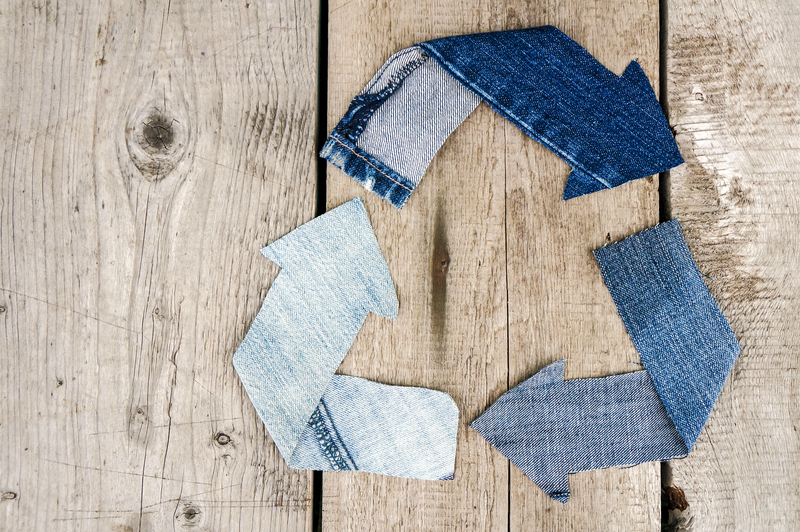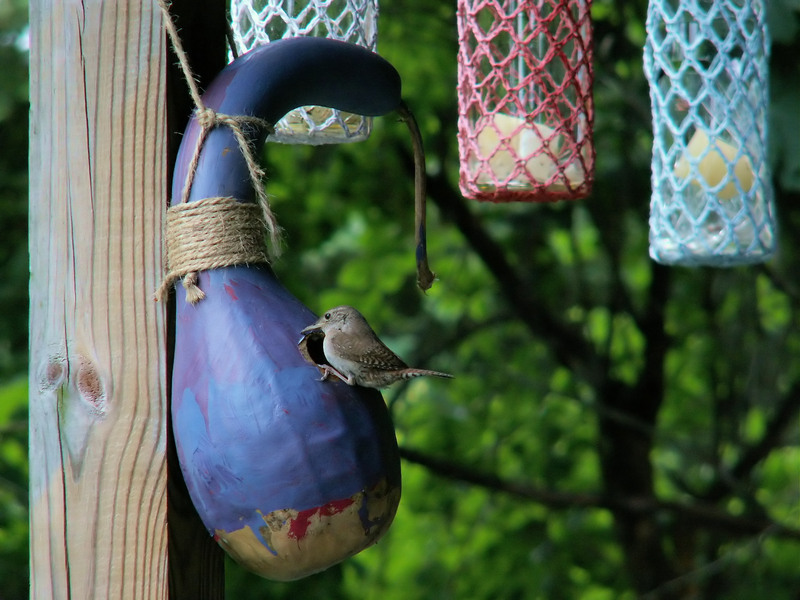Effective Strategies for Teaching Kids About Recycling
Teaching children about recycling is more than just handing them a recycling bin--it's about nurturing a sustainable mindset that will benefit our environment for years to come. With rising concerns about waste and climate change, educating kids about recycling has never been more vital. This comprehensive guide will walk you through the most effective strategies to make recycling fun, engaging, and impactful for children. Whether you're a parent, teacher, or caregiver, you'll find actionable tips and inspiring ideas to help kids become lifelong environmental stewards.

Why is Recycling Education Important for Kids?
Recycling awareness goes beyond the act of separating paper and plastic. It's about creating environmentally conscious citizens who understand the long-term effects of waste on the planet. Instilling these values early not only contributes to a cleaner world but also promotes responsibility and critical thinking.
- Builds lifelong habits: Early education encourages kids to adopt eco-friendly behaviors that persist into adulthood.
- Empowers informed choices: Children learn to analyze everyday actions and their environmental impacts.
- Encourages community involvement: Kids who recycle are more likely to engage with broader sustainability initiatives.
- Reduces landfill waste: Families and schools can significantly decrease their waste footprint by working together.
1. Lead by Example: Show, Don't Just Tell
Children often model their behavior after adults. Demonstrate consistent recycling habits at home and in the classroom. Let your kids see you rinse containers, sort trash, and reuse materials.
- Set up accessible recycling bins in various rooms. Label them with bright colors and clear signs to foster independent use.
- Share your reasons: Explain why you recycle and how it helps the planet.
- Celebrate efforts: Praise their recycling actions, no matter how small.
Teach By Participation
Involve kids in every step of the recycling process. Take them when dropping off bottles or cans, and let them help take out the recycling on collection day. _Allow them to ask questions and provide simple, honest answers_--curiosity is a powerful learning tool!
2. Make Recycling Fun and Interactive
Keeping kids engaged is crucial when teaching them about the importance of recycling. Turn learning into play to capture their interests and make information stick.
Creative Recycling Games
- Sorting Relays: Set up stations with various recyclables and have kids race to sort them correctly. Add a timer for extra excitement!
- Scavenger Hunt: Hide recyclables around the house or yard. Challenge children to find and identify which bin each item belongs in.
- Recycling Bingo: Make Bingo cards featuring recyclable items. Mark off squares as you find or use these items throughout the week.
Crafts with Recycled Materials
Transform waste into art! Use old magazines, cans, bottles, or cardboard for creative projects. Not only does this reinforce the benefits of reusing materials, but it also boosts imagination and problem-solving.
- Build bird feeders from milk jugs.
- Create planters from soda bottles.
- Design greeting cards from scrap paper.
- Make musical instruments with empty containers and rubber bands.
3. Use Educational Resources and Tools
There is a wealth of recycling education resources for kids available online and in print. These can help supplement your lessons and keep kids engaged with diverse activities, stories, and games.
- Interactive apps and online games: Try platforms like Recycle City, Your World Without Waste, or the EPA's Recycle Roundup.
- Storybooks: Read age-appropriate books focused on topics such as waste reduction, recycling journeys, or climate change action.
- Videos: Watch short documentaries or animated clips explaining how recycling works and why it's essential.
Printable Activity Sheets
Use coloring pages, puzzles, or sorting exercises to reinforce concepts learned in conversation or play. Keep resources accessible to encourage revisiting lessons independently.
4. Incorporate Recycling Education into Daily Life
Consistency is key for building strong recycling habits. Seamlessly integrate lessons into routine family or classroom tasks.
- Grocery shopping: Discuss choosing products with recyclable packaging or less waste.
- Lunchtime: Use and pack reusable containers and bottles. Discuss the benefits of reducing single-use plastics.
- Chores: Assign the role of "Recycling Monitor" to take charge of sorting and taking out recyclables.
Reward Responsibility
- Offer stickers or extra playtime for consistent recycling efforts.
- Track recycling achievements on a family or classroom chart to celebrate progress.
5. Explore Science Behind Recycling
Understanding how recycling works and its impact fosters deeper appreciation and commitment. Encourage kids' curiosity with hands-on science experiments and discussions.
- Composting: Start a small compost bin to show how organic waste can be turned into soil.
- Material decomposition: Bury different materials in pots and observe which break down over time, highlighting why some things are recycled and others are not.
- Recycled products: Showcase common items made from recycled materials to complete the "recycling loop."
Visit a Recycling Facility
If possible, organize a field trip to a local facility. Witnessing the recycling process firsthand is both educational and memorable. Alternatively, watch virtual tours or documentaries tailored for kids.
6. Address Common Recycling Challenges for Kids
Kids may have misconceptions or make mistakes as they learn. Be patient and use these as teaching opportunities rather than discouragements.
Clarify What Can and Can't Be Recycled
- Use visual guides with pictures of acceptable and non-acceptable items for your local program.
- Clarify common confusing items like pizza boxes, styrofoam, or plastic bags.
- Encourage kids to ask when in doubt, and research together!
7. Connect Recycling to the Bigger Picture
Help children understand that recycling is just one part of environmental stewardship. Introduce them to the "Reduce, Reuse, Recycle" hierarchy.
- Reduce: Talk about buying only what you need and avoiding single-use items.
- Reuse: Support swapping, donating, or creatively repurposing objects.
- Recycle: Emphasize recycling as the last resort when reducing or reusing isn't possible.
Inspire action by discussing how small changes lead to bigger environmental benefits, such as less pollution and conservation of resources. Share real-world examples and stories of young people making a difference.
8. Encourage Community Recycling Involvement
Fostering a sense of community helps children see the wider impact of their actions. Participate in local events or start your own projects.
- Neighborhood clean-ups: Invite families and classmates to clean parks or playgrounds and sort trash for recycling.
- School drives: Collect cans, lids, or batteries as part of a school-wide recycling initiative.
- Art exhibitions: Organize displays of student creations made from recycled materials to highlight creativity and reuse.
9. Expand Learning Beyond Recycling: Sustainability and Upcycling
Introduce concepts like upcycling--transforming waste into products of higher value--and broader sustainability principles.
- Upcycling workshops: Hold sessions where kids make jewelry, decorations, or useful items from discarded materials.
- Energy and water conservation: Teach about saving resources alongside recycling.
Reading Recommendations
- "The Adventures of a Plastic Bottle" - Trace a bottle's journey through the recycling system.
- "Michael Recycle" - Meet a superhero who inspires a town to change its habits.
10. Addressing Digital Waste: The New Frontier
_While traditional recycling focuses on physical materials, digital waste is an important modern topic._ Teach kids to properly dispose of old electronics and understand the environmental impact of e-waste.
- Explain why old devices shouldn't go into regular bins.
- Demonstrate how to find local e-waste collection sites.
- Highlight data safety when recycling digital devices.
11. Reinforce Lessons with Positive Reinforcement
Celebrate milestones and progress in your home or classroom recycling program. Positive reinforcement encourages enthusiasm and habit-building.
- Create reward charts for eco-friendly actions.
- Host a "green day" where kids are recognized for their sustainability efforts.
- Share successes and eco-tips with friends and family to broaden the impact.

12. Encourage Critical Thinking and Curiosity
Foster critical thinking by helping kids ask questions: Where does our waste go? Are there better ways to recycle? How can we use less?
- Let kids research answers and present findings.
- Encourage projects like making posters or writing letters to local council about recycling policies.
Conclusion: Building a Generation of Recyclers
_Teaching children about recycling and environmental responsibility_ is not only about cultivating a cleaner planet--it's about empowering the next generation to think critically, collaborate, and innovate for a sustainable future. Integrate these effective strategies for teaching kids about recycling into your routine, and watch as children transform from passive observers into active protectors of the Earth. By making recycling a natural and celebrated part of daily life, you're equipping them with the knowledge and passion needed to make a lasting difference.
Remember: Start small, keep the experience positive, and build upon successes. The planet--and your children--will thank you!